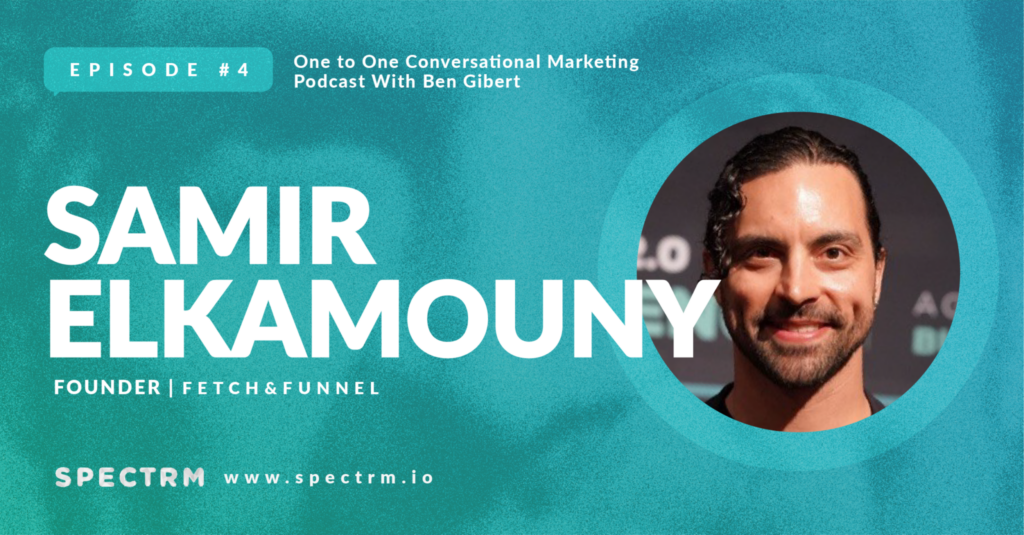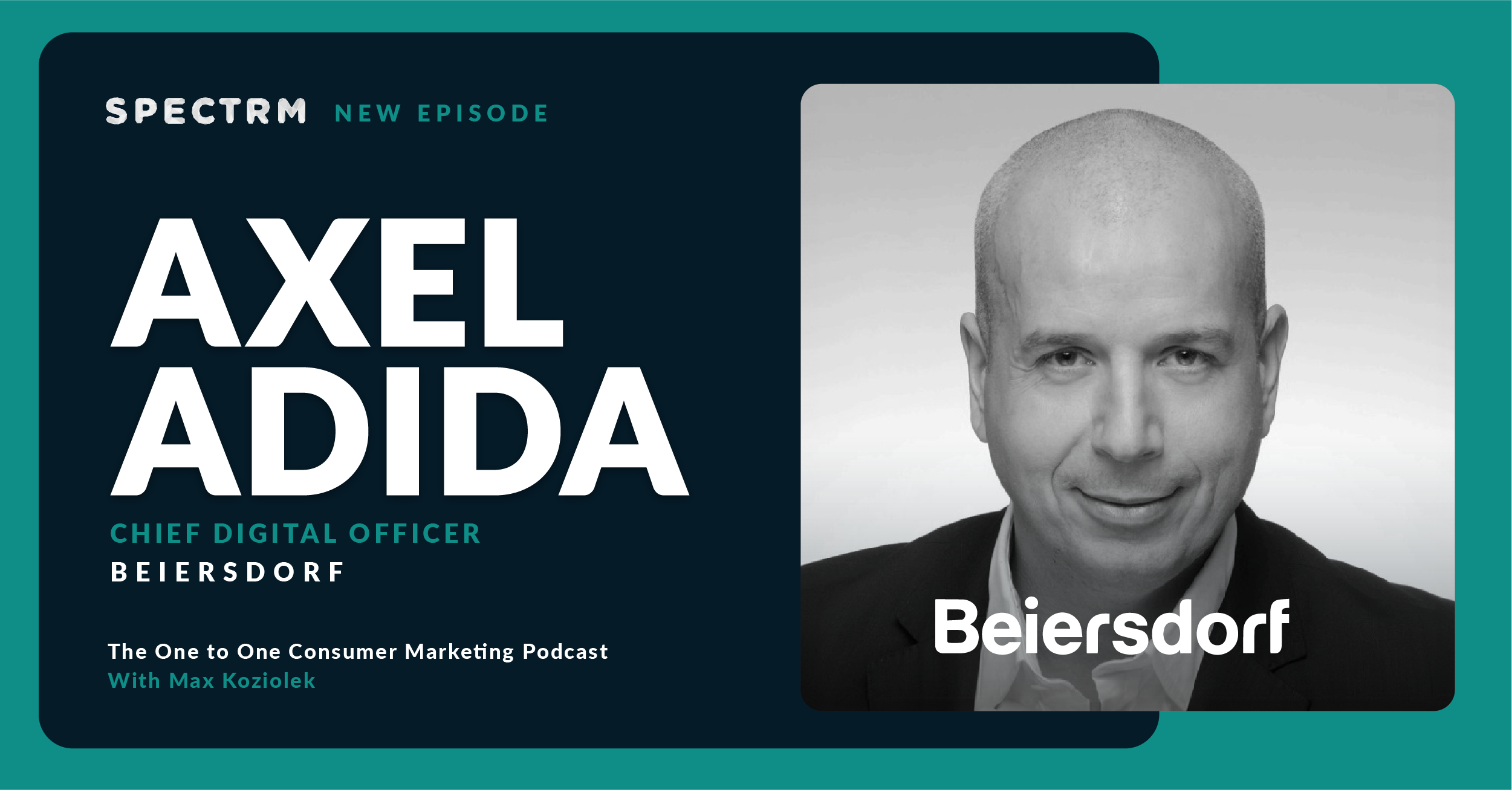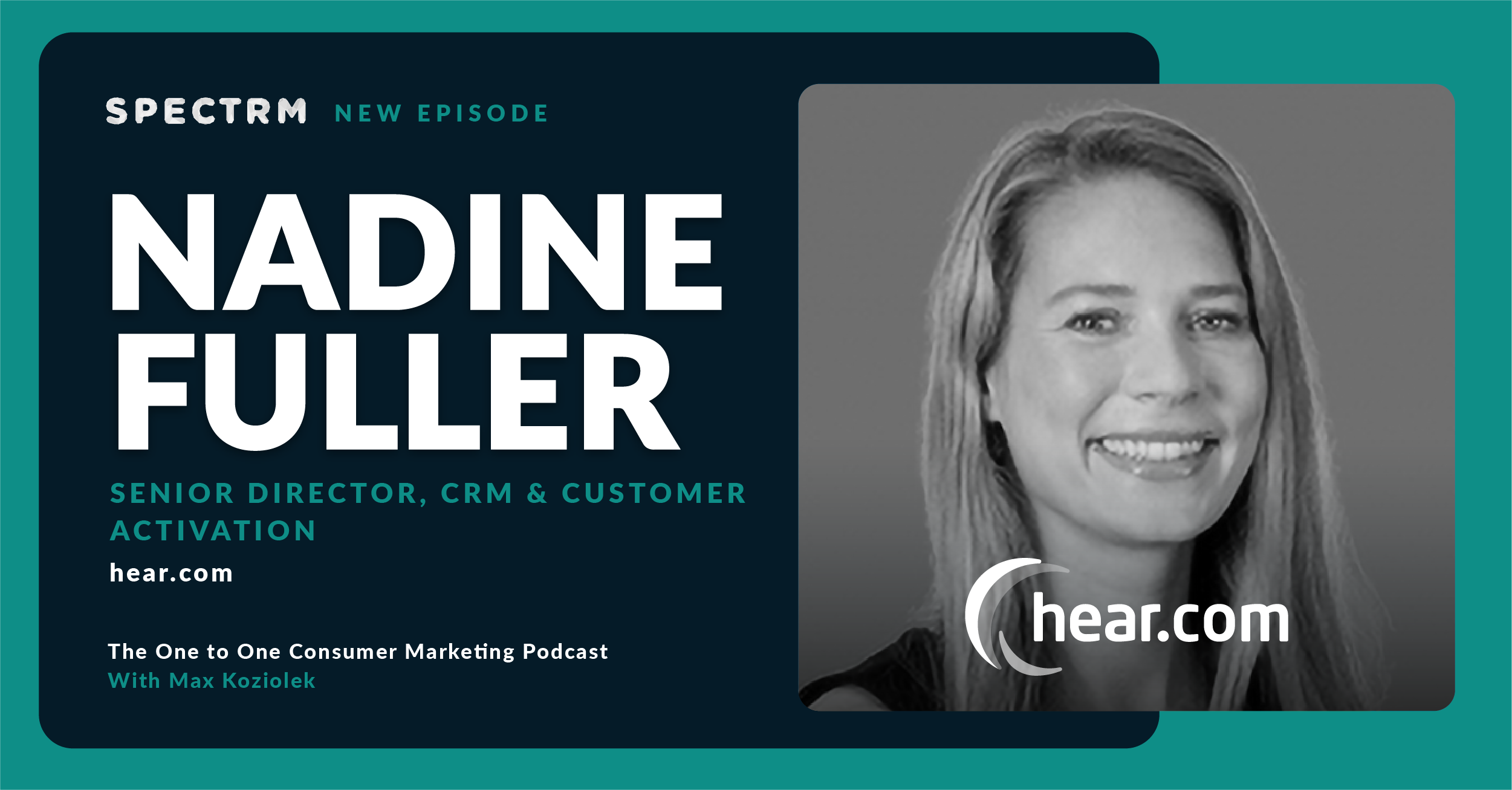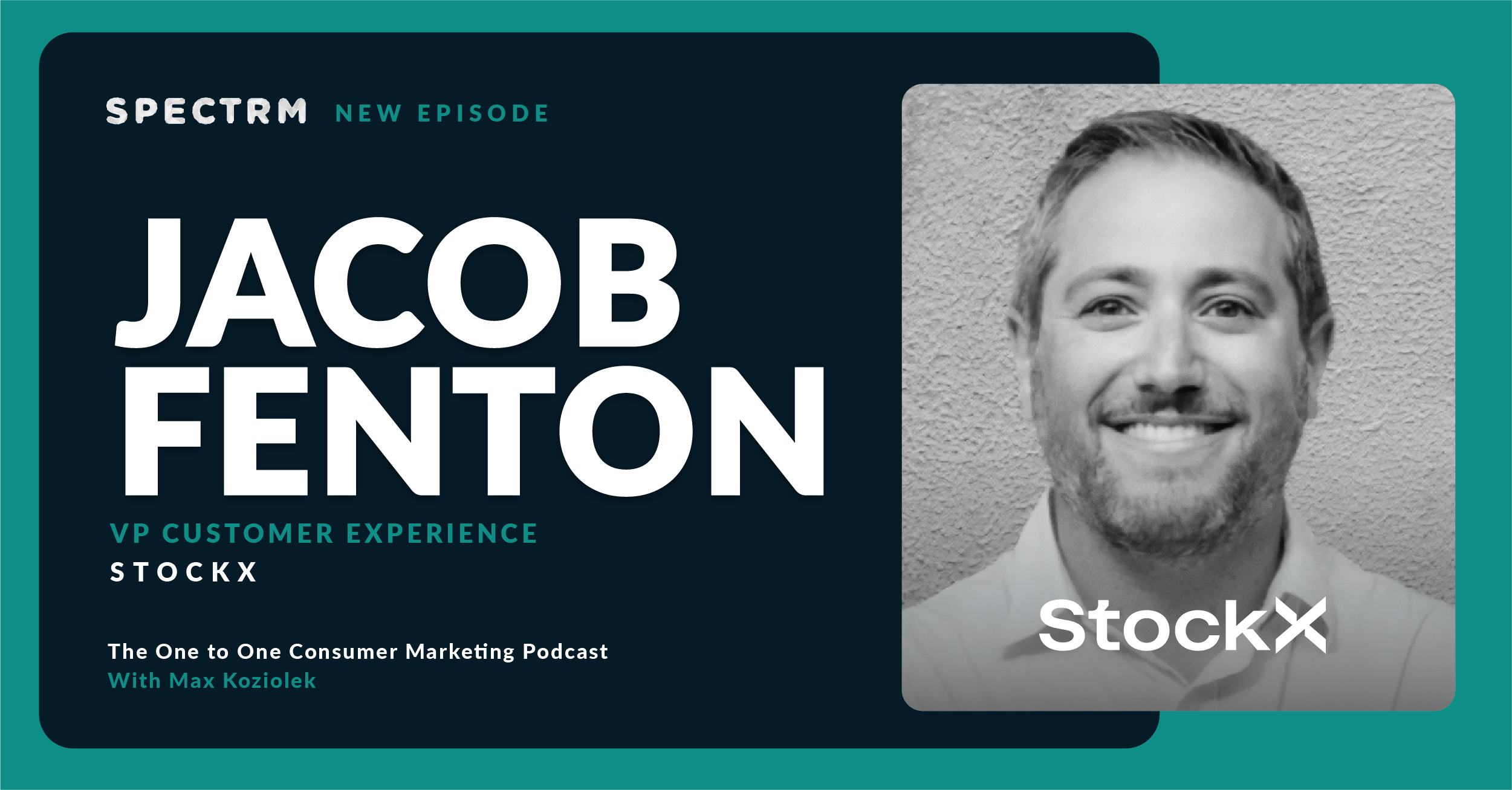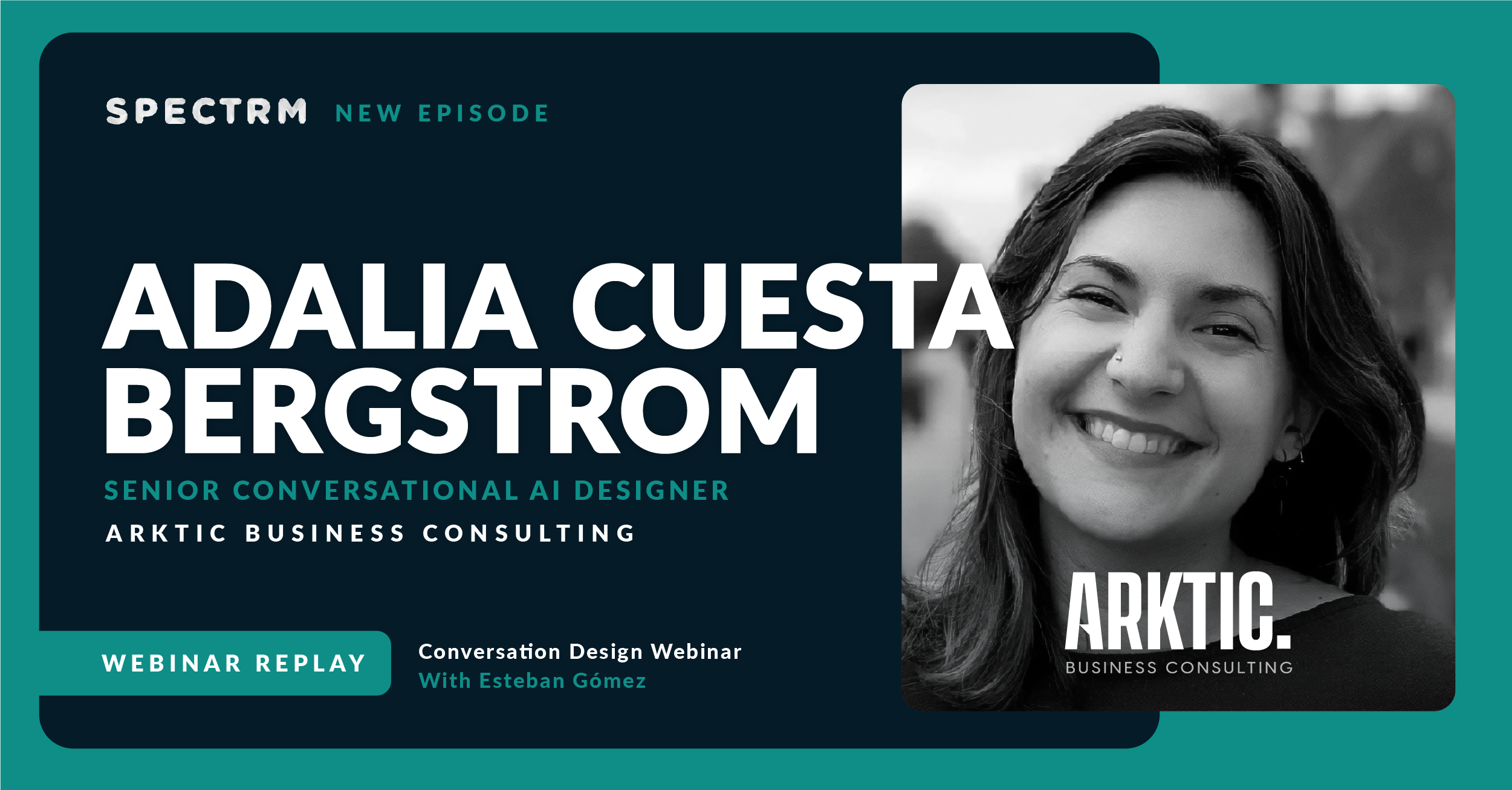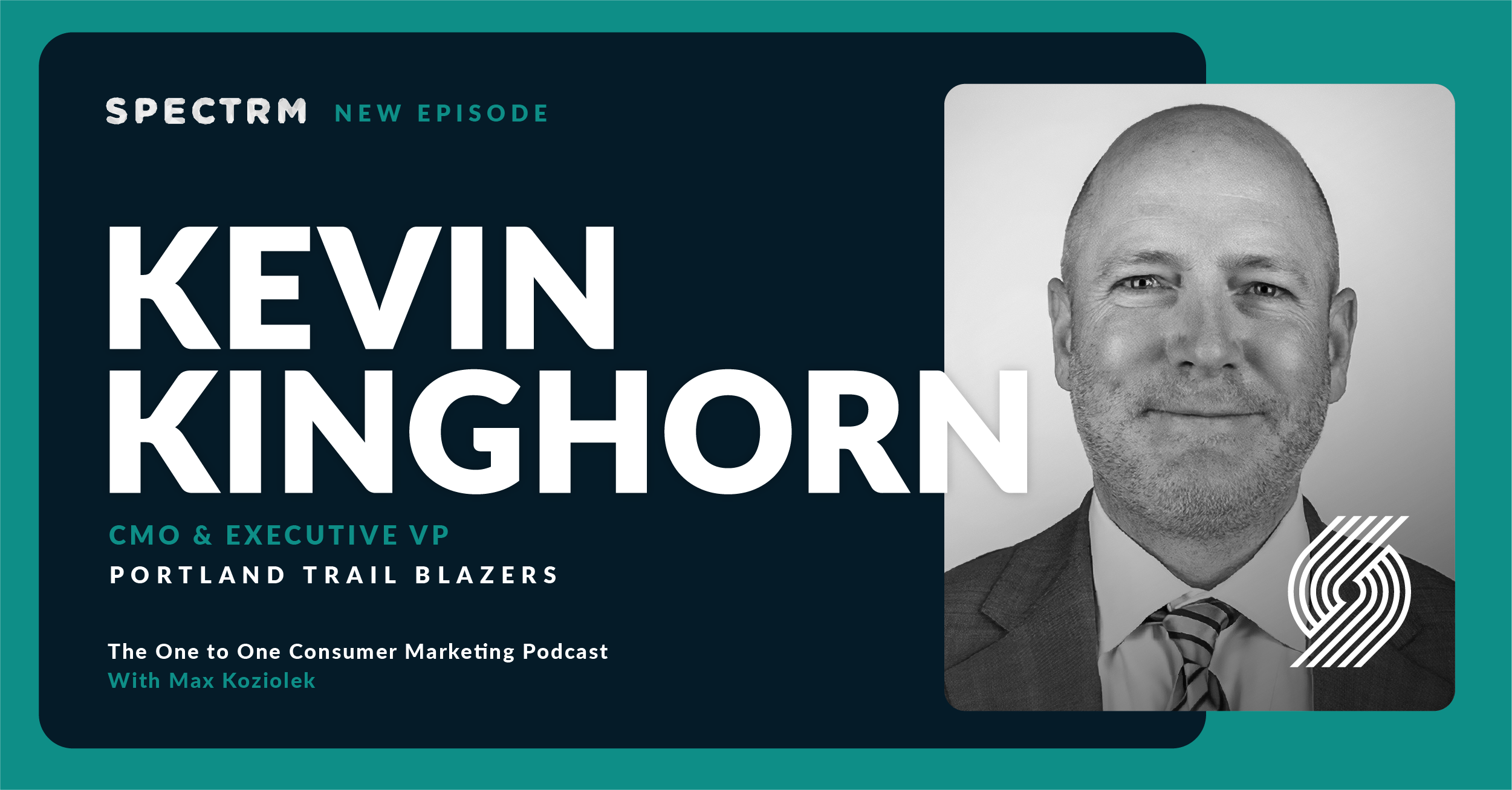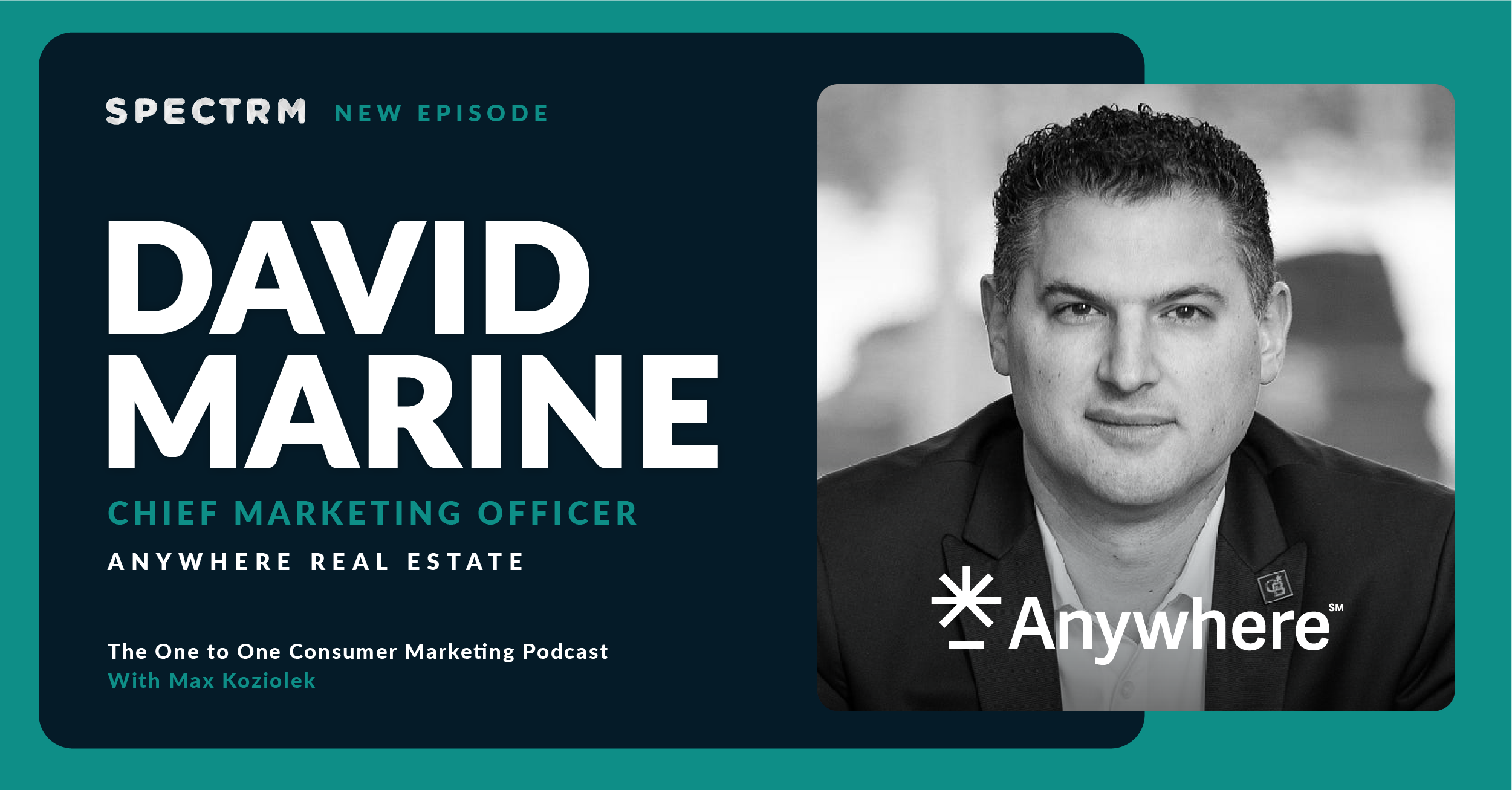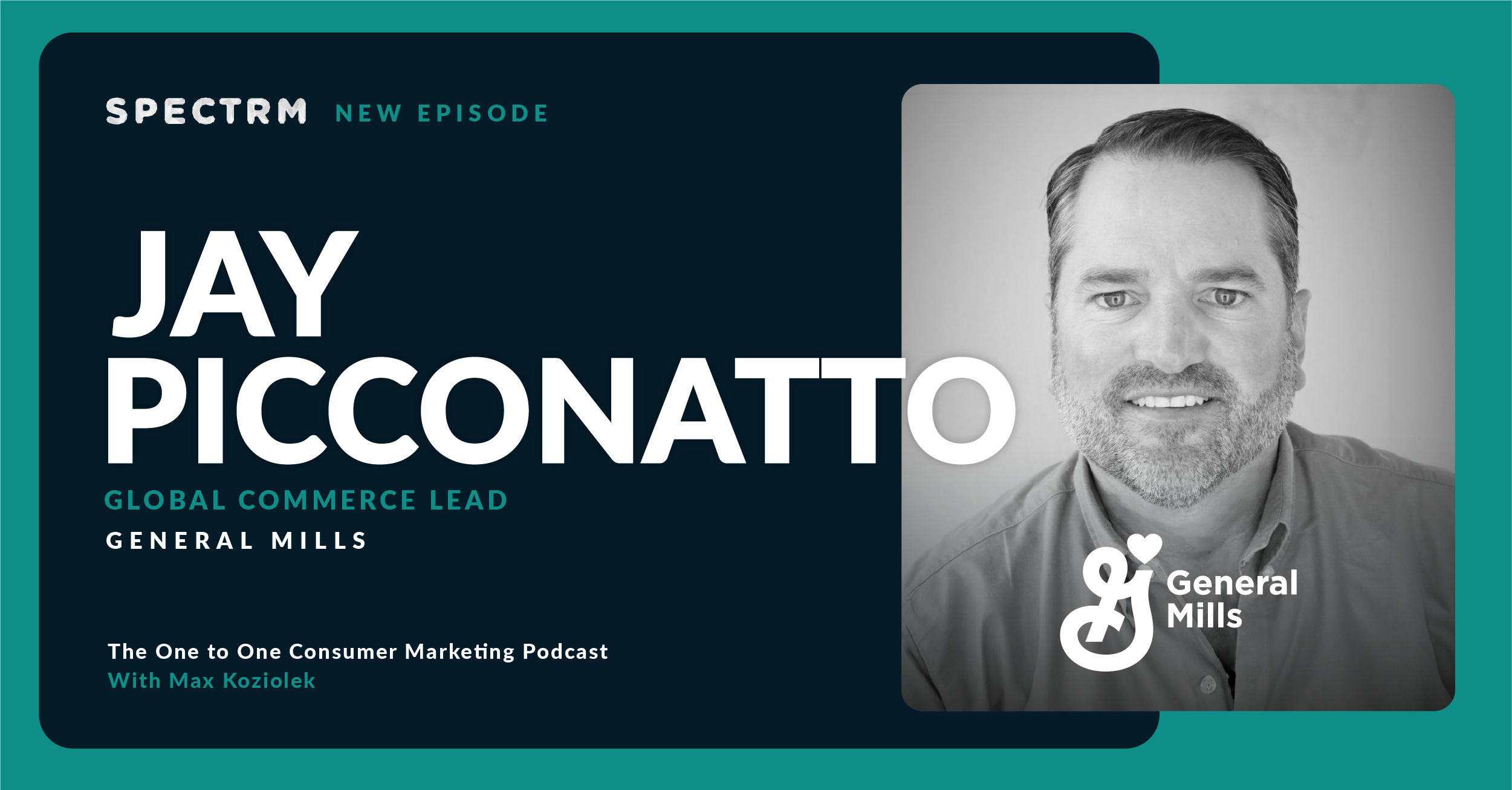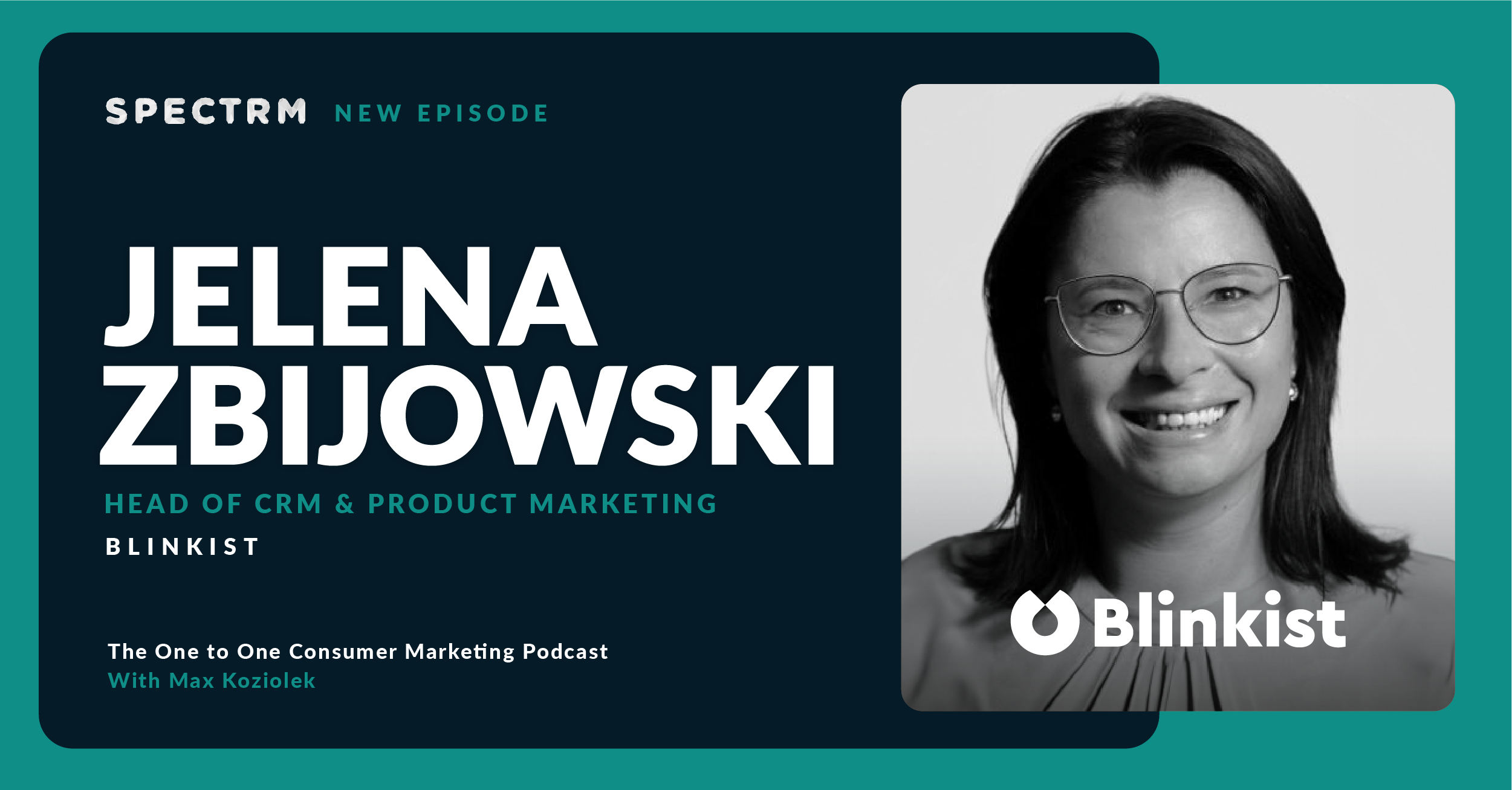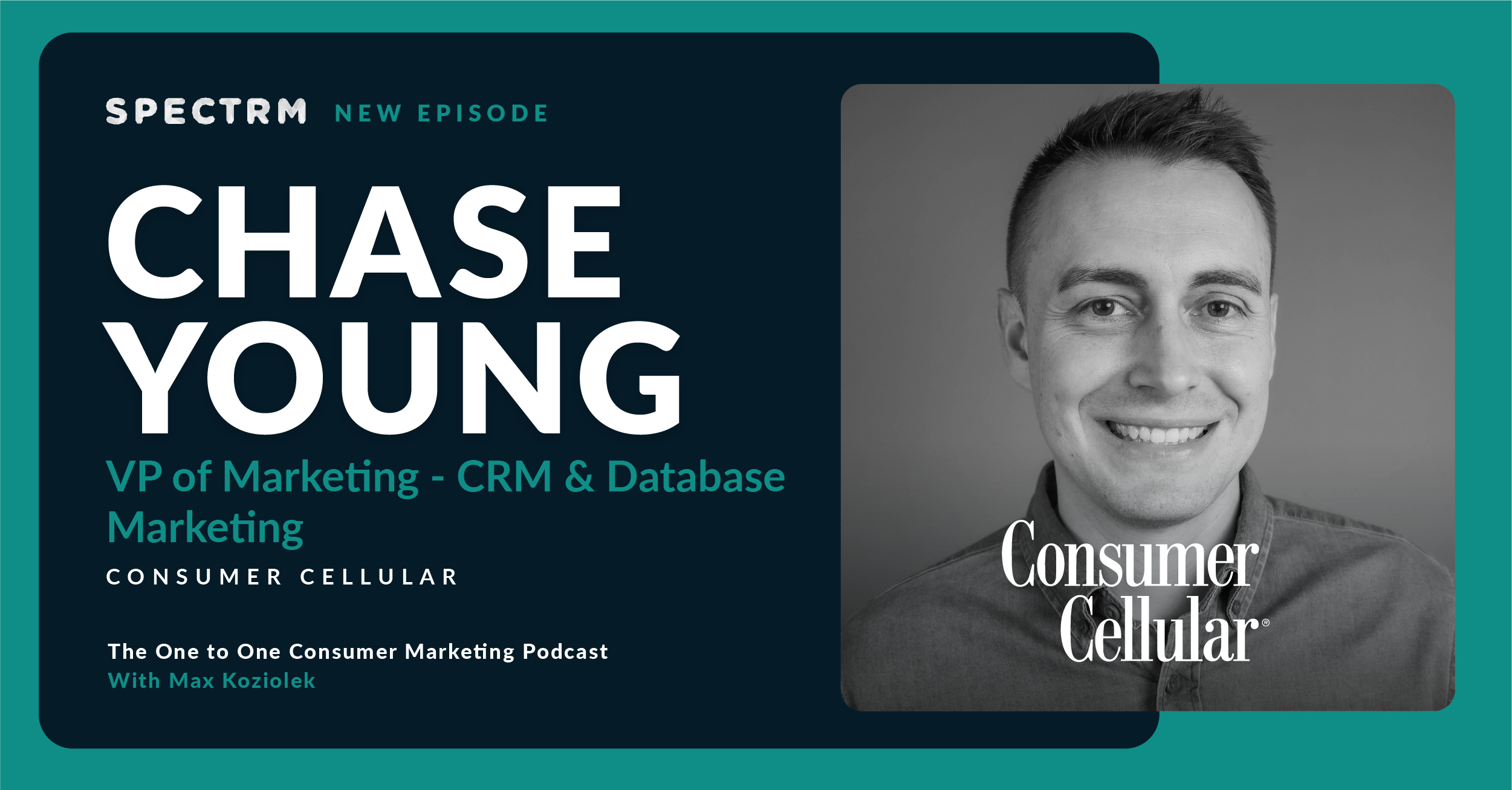Summary
Topics discussed
- Samir’s career journey and why he decided to focus on mission-driven brands
- Why even a purpose that seems small could make a huge impact in the world
- How to outline your brand story and talk to the right audience
- Marketing and branding pitfalls to avoid
- Why every business should be surveying their customers
- Why Facebook Messenger is a good advertising tool for your brand
- Your marketing strategy can be as simple or as complex as you want as long as you have a strategy
- Avoiding the adopt and drop cycle of online marketing
- Why you should be thinking omnichannel with your marketing strategy
- The future of conversational marketing
Guest biography
I think it's important for brands to differentiate themselves and be able to stand out in a crowded space. My personal goal is make the world a better place. And how do you do that? Running an agency. Right. If I'm scaling up brands that are making the world a better place, then, cool, I'm vicariously doing that through them.
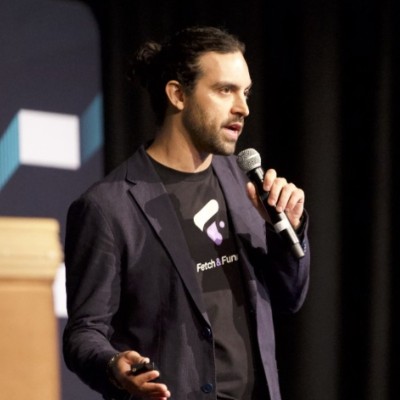
- Helping DTC Brands Scale To 8 & 9-Figures
- $550M+ Ecom Sales
- Featured Thought Leader
- 3X Award Winning Agency
- Host of Scaling With Samir
Company overview
Fetch & Funnel is a high caliber digital agency based in Boston. In four years we’ve partnered with 100+ brands and generated over $500 million in revenue for clients using the Fetch & Funnel Method™. We accelerate growth for ecommerce and direct to consumer brands through full funnel advertising, performance-driven creative and conversion rate optimization.
Industry: advertising services | www.fetchfunnel.com
Subscribe to the podcast newsletter
Transcript
00:00
Welcome to One to One: The Conversational Marketing podcast dedicated to helping modern marketing teams succeed in a messaging first and privacy first world. In each episode, we’ll interview a marketer who is winning with conversational marketing to distill best practices, lessons learned, and actionable takeaways. Here’s your host, Ben Gibert, VP of Marketing, Spectrm.
00:33
Ben Gibert
Hey, everyone. Today I’m speaking with Samir El Kamouny, founder and chief growth officer at Fetch and Funnel. Samir, thanks for chatting with me today.
00:42
Samir El Kamouny
Hey, Ben, thanks for having me.
00:45
Ben Gibert
Absolutely. I think before we get started, why don’t you tell us more about yourself, your background, and the work that you’re doing.
00:53
Samir El Kamouny
Yeah, like you said, founder and CEO, of Fetch and Funnel. We really specialize in scaling ecommerce businesses. We definitely do a lot of lead gen and work with other clients, but we love to work with brands that are mission and purpose driven. That’s the future of the industry and you got to kind of stand for something, be able to do some storytelling. Those are clients we love to work with and actually the host of another podcast called Ecom Growth Leaders. So, yeah, I would potentially encourage others to check that out as well because we’re talking with really interesting ecommerce businesses and I bet they can kind of get a lot of value that they’re getting from your podcast.
01:29
Ben Gibert
Nice. That’s great. How long has the podcast been running?
01:32
Samir El Kamouny
It’s only been running a few months. Yeah, up past like 25 episodes. I think right now. Probably going to be upwards of like 20 live in the next couple of weeks. Talked with a lot of really interesting brands. I’ve been in the marketing industry for upwards of close, like ten years now. Ten plus years. I have a really awesome background and had really fortunate ability to work with a lot of different brands and even agencies over the years before I started Fetching Funnel. Yeah, I just felt like it was a fun thing to leverage my network, highlight some of our own clients selfishly, and a great way to continue building my network too, right, of just kind of reaching out to people. I’m sure you guys are doing the same thing. I got to meet you here and we had an awesome conversation before the podcast.
02:23
Ben Gibert
Yeah.
02:23
Samir El Kamouny
Really enjoying it, but trying to talk with all different types of ecom businesses in the market. Large, small ton of repeat customers, no repeat customers, just you name it. We’re really getting a lot of different value from different founders and marketers and things like that. Just talking about completely different things that they’re going through, whatever struggles or wins or what have you. I think we’re at interesting times in the ecom digital marketing world. So, yeah, I’m trying to soak up anything that I can learn from them, but also share as much knowledge with the audience as we can.
03:02
Ben Gibert
Yeah, it’s a great format for that. I feel like really just kind of getting things out of people or just through the conversation that you weren’t expecting at all from the beginning. I know, I had that on the last episode too. Sounds like 25 episodes in a few months. It sounds like you’ve been very busy, so that’s good. A lot of conversations, I’m sure, and I’m glad you could fit this one in. Also yeah, I encourage anyone listening to go check out Ecom Growth Leaders as well. I’m sure there’s a lot of value there that our audience would love to you’ve mentioned you worked with a lot of different types of companies you’re focused on. Like, I want touch base on that. You said mission oriented is really your focus. Now, can you talk to me a little about that? Why did you choose to zero in on kind of mission and purpose driven companies and what does that mean to you?
03:46
Samir El Kamouny
Yeah, I’d say it’s slightly for selfish reasons, but also because I think it’s important for brands to differentiate themselves and be able to stand out in a crowded space. My personal goal is make the world a better place. And how do you do that? Running an agency. Right. If I’m scaling up brands that are making the world a better place, then, cool, I’m vicariously doing that through them. It’s an interesting thing where it doesn’t have to be inventing the next best solar panel. Right? I mean, we’ve got one client that sells umbrellas and you can be like, well, how are his umbrellas making the world a better place? They offer a lifetime guarantee and they stay true to that. Like, you will never buy another umbrella from these guys. The average American throws away 15 umbrellas in their lifetime. Right. And so you’re saving umbrellas from landfills.
04:37
Samir El Kamouny
Right. That’s a fun little kind of thing. Right. They do other sort of environmental things. So, again, I think it’s just we’re interesting times where there is so much competition, right? Maybe you have some supply chain issues, maybe you have some other issues that you have to deal with. Right. And try to keep customers happy. It’s like the suitcase market is always such an interesting one to me. Like, how do these there’s these no names that pop out of nowhere. I still am not convinced away has made a single profitable dollar since they’ve come out. Right. That’s like an interesting one where I always love looking at up and coming suitcase brands. Just like, how are you differentiating yourself versus anybody else? Right?
05:19
Ben Gibert
Yeah.
05:20
Samir El Kamouny
Some are kind of giving back and some are trying to do more environmental angles and different things like that. And so I think it’s interesting. Right, but not to focus only on the environmental thing, but you even see Apple doing it front and center stage right. Talking about using recycled materials and aluminum and all that kind of stuff. I think the other piece of it, too, is giving back. Right. I think that’s a big one, what we’re seeing a lot of brands doing, too. Right. It’s like Tom’s is a great example of that. Did Tom really make an amazing shoe? I don’t know, but we kind of assume why people buy their stuff. Right. Yeah. I think it’s just, regardless of whether you are mission or purpose driven, you need to be doing good storytelling. I think when you do have of that mission and purpose driven, it’s much easier to tell your story.
06:07
Samir El Kamouny
Right. It’s much easier for people to resonate with you, stand behind you, become a customer advocate for your brand, and that’s, at the end of the day, what you want. Selfishly, they’re just fun brands to work with. Right. Like, the team gets rallied behind them. We all have a good time. We can come up with cool, unique marketing campaigns. Yeah.
06:26
Ben Gibert
Nice.
06:26
Samir El Kamouny
Yeah.
06:26
Ben Gibert
So, I guess, is there a process for you where you hone in on obviously, so many brands out there are trying to be mission and purpose driven. Do you have a way of separating the wheat from the chaff or how do you choose who you work with? Or is there a particular story or approach to storytelling that you think resonates with kind of the type of brands you want to work with?
06:48
Samir El Kamouny
I mean, we do very in depth analyses before someone comes on board, during our sales process, but then even more in depth when a new client comes on board. In that process, when a new client comes on board, we’re obsessing on figuring out who their customer really is, because I think a lot of brands have preconceived notion of who their customer is. Right. I think we could probably get into that with the conversational.
07:14
Ben Gibert
Who they want their customers to be. Right.
07:16
Samir El Kamouny
Yeah. Who they want their customer to be. Right. That comes with its own set of issues, right. Because you’re potentially talking to the wrong person. Great examples of that from even big brands. You have to understand who your customer is and then who’s your ideal customer, right. Because then if you’re catering to every type of customer you’ve ever had, that’s a big problem, because you’ve had customers who are pretty much ready to dump you overnight, and then you have customers who are your soulmate customers, right. You really have to be thinking about who you’re marketing to there. As we’re going through that process, we’re obsessing over who the customer is, what are their pain points, what’s going on? Does the brand speak to that, right? Are they solving those problems, or are they solving those issues? Sometimes some of the kind of mission things or some of the differentiators that brands are kind of putting out there is somewhat fluff, right?
08:08
Samir El Kamouny
I think there’s a lot of that going on, right? Like, I’m all for planting trees, don’t get me wrong, but is one tree being planted from my order? Again, that’s awesome thing, but it doesn’t differentiate you from another brand because everybody’s starting to do those things, right? Or going carbon neutral and you’re shipping, or it’s like, those are things that we should just be doing, period, right. That doesn’t differentiate you. I think that’s not necessarily something that we’re trying to overanalyze for the client, but we’ll tell them, hey, this is kind of fluff, and this is not resonating with customers, and we have the survey data to back that up. Right? Or, hey, this is awesome, and this is something that is really resonating with people. We need to push this in the copy more. We need to get creative. We need to talk about doing videos around this.
08:55
Samir El Kamouny
We need to get creative. We need to get customer testimonials talking about it, et cetera.
09:00
Ben Gibert
Yeah, I guess it makes a lot of sense to try to separate what feels intuitively to people more like boilerplate corporate social responsibility stuff from things that are actually mission and purpose driven. I mean, can you walk me through you mentioned helping brands really understanding who their real customers are, who their most loyal customers are. Do you have an example of A, B to C brand that you’ve worked with where you did that, or just a case study in general that you want to talk about?
09:30
Samir El Kamouny
Yeah, it’s an interesting one. We have a great client. I think probably the point I made earlier probably resonates a bit with some people about being careful about trying to preach to everybody. We have this great client in Credaware who sells these compression socks and sleeves and stuff like that. It’s literally the best product in the market, like, period, bar none. Like LeBron James is wearing their stuff. Courtside leaders in the UFC are using their stuff. Like, all these huge athletes are using their stuff. We can never use it in copy or anything because it’s not sponsorships or anything like that, but that’s just how good the product is. It’s easy to be like, well, we’ve got 30 year olds who are runners wearing this. We’ve got 40 year olds doing getting into CrossFit using these products. We’ve got the 50 plus year olds who are just trying to live a normal life with pain free.
10:25
Samir El Kamouny
There’s this huge wide array of who uses these products, what types of activities are they doing, what age groups, what genders, you name it. It becomes like an interesting one where we definitely have through our research and our surveys and everything like that, have identified definitely core audiences that we know perform great and we need really specific creative to those audiences, right? Because is a 65 year old going to really resonate with a 25 year old testimonial saying how much they love the product? Like not so much, right? If there’s a testimonial video kind of mashup of a bunch of 67 year olds being like, oh, I can go about my day pain free, this product’s awesome, blah, blah, that’s going to resonate with you a lot, right? And vice versa. If you’re a 30 year old who’s just trying to get back into running really hard and your knee is kind of bothering you and you need this product.
11:21
Samir El Kamouny
It’s just about you have to be careful. That’s the biggest thing, right, and identify those core audiences that hey, are performing really well. I think honestly, conversational marketing is a great way to even get some of that survey data and identify those types of things right. Because no one wants to fill out a survey anymore. Right. It’s hard to get survey questionnaires back. We’d certainly work with some smaller clients that they just don’t have enough traffic to get. They don’t have enough customers to be like, hey, this is statistically significant data to now make decisions based off, right? I think using conversational marketing can be a great way to get that your own data to be able to find that out. Like, why are people buying my product? Why are people interested in my product? What pain points do they have? All that kind of stuff.
12:07
Samir El Kamouny
As you start to see trends, then you’re like, cool, I should focus on a marketing campaign that targets this person. I know their pain points are incredible. It’s literally pain, but you get the idea, right, and you can talk about how your product or service solves that problem.
12:26
Ben Gibert
Yeah, that’s really interesting. Especially I think you mentioned the conversational aspects. Obviously, this is a conversational marketing podcast, so I’m always going to hone in on that shout out. Can you talk more about you mentioned understanding the customers, why they bought from you or who they are. That’s a slightly different approach as far as where they are in the buyer journey that I’ve talked to with a lot of people on the podcast. It’s almost like your entry point is not necessarily like a top of funnel ad, but it’s like, hey, you’ve already bought the product, let’s get you into messenger or something to talk to you about why you bought it. It’s almost like market research and consumer insights. Am I hearing that right?
13:03
Samir El Kamouny
Yeah, I think everybody should be running surveys no matter what, whether it’s through messenger, whether it’s through traditional surveys, whatever it is, however you can get that data. I think you should be serving lots of different sections of the funnel. People who are abandoning cart, leaving your website, why are they not buying your product? Find out those answers. The people who are checking out, maybe the first time visitors and things like that. If you get that data, great. I mean, I think you probably can assume some of the stuff if you just watch heat maps and where they’re going on your website and whatnot. The abandoned cart is definitely a great one. Your first time customers is definitely a good one. Hey, why did you just buy this product? Right? I’m super curious. What made you almost not pull the trigger, right? Those are important questions to ask and then like your dedicated customers too, right?
13:51
Samir El Kamouny
The people who have bought the most from you, the people who have bought from you for years, the people who have spent the most money. You can call those people sometimes, too. I’m not telling people to just call people here, but you can. We’ve had clients do it, right? Like, reach out to someone who just dropped five grand on your website and your average order value is like $100. And be like, hey, I’m the founder. I just want to say I appreciate your order. I would love to just get a couple of questions if you’re cool to just answer like, what made you buy whatever, blah, blah. You cold call cart abandoners. They’re not really going to tell you the truthful answer to why they abandon cart, right? It’s probably financial or something else, but a customer who loves your product is definitely going to be more likely to tell you that information and that’s still vital information to then use in your prospecting campaigns, in your top of funnel campaigns, right?
14:43
Samir El Kamouny
To talk about why this product is so great. I mean, we run testimonial and user generated content pretty much everywhere in the funnel depending on the type of business and the marketing channel we’re on, because even those testimonials at top of funnel can still talk about the product, right? We have this product that it’s a bag and you put your vegetables in it and it keeps your vegetables fresh 14 days longer minimum.
15:08
Ben Gibert
I think I had some of those actually my wife shots in the end.
15:11
Samir El Kamouny
Awesome. Yeah, that’s an easy thing to understand. An ad, me telling you that you’re still going to be very hesitant to purchase something like that. If your top of funnel ad is just a bunch of people being like, oh, look at my kale, after two weeks, it still just refreshes the day. I got it. I bought this for all my friends and my family and they love it. Blah, blah. That stuff is definitely going to do really well. In the conversational component, too, I feel like you could gamify it more than a survey in a way, right. I think with surveys it’s more mundane and you can usually only ask one or two questions max, but in the conversational marketing component, I think you can literally gamify it and you can make it more interactive and you can get more information, I feel like. You can also use it as a product recommendation tool as well.
16:02
Samir El Kamouny
I mean, those are some of the campaigns that we’ve had extreme success from where we’re asking them those vital questions, but then at the end, we’re saying, hey, here’s the perfect product for you, and here’s why. We know it because you just answered these questions for us and it’s so much more interactive versus traditional surveys and things like that. Right. I think that those are things that end up just like, performing really well and being able to get more answers than from the traditional surveys of the traditional website pop ups kind of thing.
16:36
Ben Gibert
Yeah, I mean, you touched on a lot of great things there, I think, that are so key to why this space is interesting. Right. That idea of you’re really all about zero party data, like getting that data directly from your customers, like, what do they want at this given stage? I think the storytelling element is really interesting too. People don’t necessarily react to very cold impersonal like automated abandoned car emails or even, why did you buy emails? Again, it’s linking back to the story. If you tell a story, like, the founder reaches out and is like, hey, I built this brand for people like you, I really want to know why you bought it. Again, that story element makes a huge difference to the level of engagement that you get from the community of people like your customers that are buying from you too. Right.
17:18
Samir El Kamouny
I think brands miss that. Many brands, we’ll consult with brands all the time and they want to appear bigger than they are. I understand that from like a customer service perspective and you want the customer to feel like they’re going to get the attention and the product is as quality as you’re saying it is. On the other hand, I’ve seen really awesome customers success wins from just being totally honest that you’re a super small team. I mean, my girlfriend runs her own fashion brand and she’s had customers kind of be like, oh, the shipping is going to take a little long, blah, blah. She’s just like, hey, I’m sorry, we’re like a three person team. Thanks for bearing with us. I’m the founder, blah, blah. They’re like, oh, don’t worry about it, no worries. It could be not a problem whatsoever. Telling your story, I think that’s an interesting piece too, that actually some of the best sales pages you can have is your about page that people kind of miss.
18:15
Samir El Kamouny
They don’t have an about page or they keep it super basic or it’s super lame. That really sometimes can be your best selling tool that you can use.
18:26
Ben Gibert
Yeah, I mean, ultimately, in a crowded marketplace, people want to buy from the brands that they connect to, right. You connect to brands that tell a good story or that you feel some affinity to. I feel like you only feel affinity towards people or brands if you understand what they stand for and you’ve had the opportunity to kind of talk to them too, or feel like you’ve talked to them.
18:47
Samir El Kamouny
Yeah.
18:47
Ben Gibert
I want to just quickly jump back to one thing you mentioned, because that’s something that we’ve seen a lot in the space, too, is like that kind of product finder journey. The quiz with the product recommendation working really well. Can you talk more to that? Have you seen that work across all industries? Are there some where you see that work particularly well or some types of journeys that you see work particularly well?
19:09
Samir El Kamouny
Yeah, I’ve seen a lot of them work really well. There are some industries that you have to do it because you almost need like, a bridge. We’ve worked with some industries that you’re really not able to advertise on Facebook. CBD is a good example of that. I think Fields is a great CBD brand that’s like, their marketing is on point and you can look at like they have Jebbit landing pages that are very conversational in a feeling because you’re asking questions and they’re responding, but you have to keep it simple. You don’t want to ask them like ten questions or anything like that. The other thing as well is it’s also way more complicated to build. Like, if you’ve got three questions and three answers, you potentially have 28 outcomes now, depending on how robust or how you build your bot out. We’ve seen a lot of success from it and we call it out, like, in every instance, right?
20:01
Samir El Kamouny
We’re saying, like, hey, click on this to find out which is perfect for you or which size is great for you. The size one worked for us really great in a couple of different weird instances where products were just like it was unclear. We had an electric skateboard client who they only have one size now. There was a time where they had three sizes and it was super confusing, and they had a diagram and it was just like, I don’t even understand this, right? It was like, hey, what’s your snowboard stance? How tall are you? And there was one other question, I.
20:35
Ben Gibert
Forget what it was.
20:36
Samir El Kamouny
And then it was like, boom. 58 CM is yours, right? We had a huge conversion, a big increase in conversion rate from adding that. We had it right on the product page, right? Like, click our sizing bot. I think another piece of it too, is that you should always make yourself available in these too. It’s okay to call it out that it’s a bot, but then always have a way for people to reach you. Because I think that’s where a lot of people miss that they want to try to make this thing take care of everything and then they don’t really make a way to reach out. Unless you’re going to spend $30,000 to have someone build you out, probably more than that these days, but build you out some super robust customer service bot that still breaks, just make it easy. Just be like, hey, do you want to talk to a human?
21:19
Samir El Kamouny
I can connect you with a human. Yeah, may take us a few hours or two days, but we’ll get back to you.
21:25
Ben Gibert
Managing the expectation. Right? Really, like, at the start like, hey, this bot is for Sizing, or this is what you should expect from this experience. Boom, boom. Go through that. You can connect them to maybe even a different type of experience that’s still a bot, but you can also give them the option to like, okay, you want to talk to a human, you’re always going to have that long tail that you can never automate. Right. Be honest about the interaction.
21:46
Samir El Kamouny
Yeah, exactly. I’ve gone through it multiple times where I just bought a backpack recently and I was using it for travel and I was like, this thing was huge. Do I really need the huge one or not? I asked all these questions, and it would have been easy for them to be like, how are you using this? Do you want it to go under the chair in the plane or not? All those a couple of easy questions that then would have easily helped me make my decision. Yeah, we’ve had a bunch of those instances where the Sizing one was kind of an easy one, but we’ve had a lot of product recommendation things too, where we’ve asked people more around their needs or what they’re looking for. And those have done really well. I think some of that can come back to some of that survey data too.
22:31
Samir El Kamouny
Like if you find out what people’s issues are and then you can highlight some of those too. Right. You can say like, hey, price point is a big thing. Call it out that you have financing. Right. You can get this as low as $50 a month or whatever. You can sprinkle in some of those little key differentiators along the way, which can certainly help as well. I think the other thing is you’re accumulating data, which is super important. You’re finding out what people are clicking. Is everybody buying this one size? Is everybody interested in this product? Does everybody have this one pain point? And you’re starting to identify these things? If no one’s ever clicking on this one button. Delete it, add a different one, see if there’s other problems. You’re getting that first party information. I think the other thing is try to collect as much information from them as you can too.
23:21
Samir El Kamouny
Right. So someone’s getting committed. Right. If you think about a breadcrumb form that we talked about in the marketing world for Eons, it’s like a multi step form, right. And I’m committing now through this process. At the end, if you ask me for my email address, I’m like, oh, fine, I’ve already asked you three questions, I just want my answer. Here’s my email address, no problem. You’re more likely to get that email address as well, right. I think in this, it’s always been important to build a list, but now more than ever, it’s important to build a list. I feel like we see that every year. But you should, right? And you should be doing that. If you’re really advanced, you could even have your email marketing segmented based off of the responses that they gave in conversation or in messenger or whatever, right. You can get real advanced with this stuff, but you don’t have to make it super advanced.
24:12
Samir El Kamouny
I’m just saying, if you’re that nerdy and you have that kind of time and you have that many customers go.
24:16
Ben Gibert
For it definitely the way to go. The future that we see is definitely that you don’t need the email list eventually, right. Because you can reach people directly on these channels. Well, that’s always kind of if you like the ecommerce marketers Holy Grail is like, we got to build up that email list. There is the opportunity to actually use this channel to reach people directly and to also reengage them directly as well in a way that I think feels very natural. Right. Like, email is degrading in performance pretty rapidly as far as all of the things that are happening in this space. I think people’s attention is on their messaging apps. For me, I know that I spend way too much time looking at all the messages that are coming in on WhatsApp and messenger and things like that. My email is a long list of things that I need to get to and it doesn’t have quite the same attention grabbing aspect for me.
25:07
Samir El Kamouny
Yeah, and you’re lost in the promotions tab and all that kind of stuff. Right. I think that we’re finally at a point as well where we don’t really need to convince businesses any longer like, that it’s okay to message people in messenger, it’s okay to message people in SMS, it’s okay to message people on WhatsApp. Right. I feel like that was an issue that we had. We were very early on doing chat bots and messenger and things like that, and it was like the number one objection we had. Right. Well, I wouldn’t want a business messaging me on Facebook. I wouldn’t want a text message from a business. I feel like everybody’s getting used to it at this point, right? They’re getting hit up by brands, and it’s just important to not bother them, make sure you’re adding value, obviously, make it easy so that they can opt out.
25:53
Samir El Kamouny
We had one brand that we built to, like, a few hundred thousand messenger subscribers, and literally all it was a weekly blast for a sale. It was a different sale, different product promotion, and that’s all it was. It was super salesy. We told people, this is what you’re signing up for. We do a huge drop every week, big sale, be the first to know about it. Within an hour, 90% of the orders came in. Kind of a thing, right? Because it’s so instant, and we had huge numbers coming from it. There’s a direct ROI from acquiring people onto that list, too right. Because we knew, like, hey, this is what these numbers can produce on a consistent basis. We just ran ads to build that list and hammered them every week with sales. And it worked. It was okay for that product. I’m not encouraging people to do that.
26:45
Samir El Kamouny
Probably doesn’t work for every product, but it worked great for that product.
26:47
Ben Gibert
No, but it totally can. We’ve had customers that do, like, sneaker drops, for example, where they have the hot new thing that comes in that week, and people want that, right? They want a channel where they can be the first to know or to feel like they get a personalized offer. You’re right, it’s like, it’s totally worth. You mentioned the ad, like, building that audience, that you should see that as an investment, too. Yes, you can convert off the original ad. Like, people might go through the product, finder journey, and then buy something, but at the same time, you are building this valuable audience that you can segment with all this data that you can kind of reengage in chat that you can send these drops to if they’ve signed up, obviously. And it’s about building that value. I mean, I think you touched on being very early in the space and that now businesses, the idea of messaging people is kind of more commonplace.
27:35
Ben Gibert
Can you maybe just quickly summarize what you feel like the state of conversational marketing is today?
27:41
Samir El Kamouny
Yeah, I mean, it’s interesting because I feel like it’s like that curve that happens. Right. I can’t remember the name of the.
27:49
Ben Gibert
Curve, but the hype cycle.
27:51
Samir El Kamouny
Yeah, exactly. Because were really early on, I was like, this is going to be the next huge thing. We became pretty much one of the top leaders in it. We were doing webinars, and I was speaking at every conference, talking about it, and I was like, this is going to be amazing. Right. Because it’s the first party data that you’re getting the segmentation that you just mentioned, which is amazing, right. Good luck segmenting your email list unless you’re super advanced and even that like, how segmented is it really just based off of RFM stuff and whatever? Yeah. Kind of that happened, so we had to convince everybody, right? You have to try this. It’s amazing. It’s 90% open rates, blah, blah, blah. It kind of hit a point where, okay, now shiny object syndrome, now everybody wants in, but they’re not willing to stick with it, right?
28:39
Samir El Kamouny
They’re not willing to stick with it. They’re not willing to put in the time and the effort that it takes to make it successful because it’s not like this overnight. It’s like anything, right? Like launch email. It’s not going to be successful in the beginning. It takes time. You build a list, nurture that list, take care of that list, all of those things, then that list can print you money, right? So I think it’s the same thing. You get that early, the people that shiny object syndrome think this is just going to be the best thing ever. Just as quickly as they adopt it, they drop it, right. And you kind of see that. I feel like there’s like this ghost town of all the bots that still exist but are not maintained or monitored anymore. You know what I mean? I come across one every now and again, and it’s just broken and wonky, and no one pays attention to it anymore, which is bad.
29:23
Samir El Kamouny
Don’t do that. Just turn the thing off if you’re not going to pay attention to it. Now I think we’re at an interesting time where real brands get it, they understand the value of it, they understand how to capitalize on it and utilize on it. If they don’t, their partners, like us or something like that, are convincing them of the ways to utilize it, the opportunities that they can have with it. I think at this point, a lot of the brands have built up a good sized list, right, and are doing segmentation and are asking questions and getting vital answers and able to utilize that data. Because at the end of the day, data is so important, and even if you don’t review it all the time, as long as you’re accumulating it, you can look at it later, right, but then that’s what’s going to help you make decisions.
30:11
Samir El Kamouny
That’s what’s going to help you grow your business. Those are the things that are going to allow you to just succeed, right? Like knowing your numbers, paying attention to the data, knowing what’s going on with your customers, all that kind of stuff.
30:24
Ben Gibert
Yeah.
30:24
Samir El Kamouny
I feel like we’re at this state now where I feel like we don’t have to convince anybody anymore. It’s like they either want it and they’re willing to kind of put in the effort they’ve kind of done their research or whatever, or they’re already doing it, but it could just be done so much better, or they’re doing a great job and we’re like, this is great. This is just going to help us that much more. I think we’re all seeing that, right? I could argue back and forth whether Cookie is going to go away or not, or whether that even matters or not, but definitely we’re talking about building the list and the importance of that, and it is important and having those no matter what, every brand should be Omnichannel, no matter what it is. Right. I think that’s true even with messenger. If you’re international, everybody’s going to use WhatsApp if you’re in the US.
31:12
Samir El Kamouny
Not that many people use WhatsApp like, it’s starting to get bigger, but it’s not as big, right. You should be as in as many places as you can. Instagram DMs is an amazing place to be. I get responses from big brands and Instagram DMs, what I mean? Or even like big marketers and things like that. A lot can happen. There big partnerships and opportunities, right. People are paying attention to their Instagram DMs, right. I just feel like you should cast that wide net as well. Right. Like you said, email is always going to get worse and worse. You’re always going to get stuck in the promotions tab. The more places you can be, the more opportunities you have to market to people. And I think that’s another thing, too. You can show do all of the things and get three, four, five touch points in front of people, right?
32:01
Samir El Kamouny
Black Friday is a great example. You want to run retargeting campaigns on Black Friday week and you think you’re going to get in front of your entire audience. That’s just unrealistic. Right? If you hit them all up instagram, if you hit them all up in WhatsApp your competitors are not doing that or may not be doing it as well as you, and then that’s when you can have the biggest months. You can break last year’s record, you can break the COVID Black Friday years that we’ve had now and things like that, because I think that’s going to be interesting this year. Right. I think a lot of brands are going to struggle this year. They’re going to want bigger numbers from last year and the year before. If they’re not doing things right, I think it’s unreasonable expectations to expect.
32:43
Ben Gibert
Yeah, definitely. There’s going to be a lot of sad marketers come Black Friday. My next question was going to be your top three pieces of advice. I think you touched on some of those things already . You mentioned being like Omnichannel, like being where your customers are and by extension, if you’re in messaging channels, kind of being where your competitors aren’t and the benefits that can bring you. I think if you have your top three pieces of advice for other marketers that are just getting started in the conversational space, what would that advice be?
33:14
Samir El Kamouny
Yeah, great question. I think the Omnichannel is really important because I think a lot of businesses have been too reliant on Facebook for too long. We’ve been preaching that for years anyways. You should be really thinking Omnichannel and as many places as you can be. I think the storytelling one is probably a big one, right. The brand should really be thinking about right? Like you should be thinking about your home page as a storefront. When people come into your store, they can see a lot more in a physical store than they can just cruising a home page. You’ve got to really utilize that place. Like, you really got to be careful what you put there and make sure you’re saying the right thing. I think storytelling can do a really great job of that and help the brand. I think another thing is really paying attention to conversion rate.
34:00
Samir El Kamouny
I think a lot of brands aren’t really they’re not thinking about it. They’re not testing enough. I think the overarching thing is just test, like test stuff, right? I think that’s probably the biggest thing. When you’re done testing, test some more. When you’re done with those tests, keep testing and never stop, right? I think conversion rate is a big part of that, and a lot of brands are not paying too close attention to that. It’s like if you’re at a 1.5 conversion rate and you’re obsessing about your roast on your campaigns, and then you just get your conversion rate to three, now, your roast is going to pretty much double on your campaigns, right? And so it’s really important. On the other part of conversion, a lot of brands also will then only focus on the conversion rate. What’s add to cart to purchase rate, what’s that rate look like?
34:47
Samir El Kamouny
Visitor to add to cart, what’s that percentage look like, what’s home page to product page, what’s that rate look like? Right? Pay attention to all of the things in the funnel and look at where you can increase the conversion rate into each step. I think conversational marketing can actually play a role in a lot of those steps. You can apply different things if someone visited this page and you can retarget them on conversational marketing that way, do that and then don’t send them back to your home page. Send them to the next step in the funnel, right. Get them to the next step. I think that’s another really important thing, too, because if you do all three of those things really well, you’ll continue to grow, you’ll scale, you’ll succeed. If you’re paying attention to those three things you’re thinking about the numbers you’re looking at the data, you’re trying to figure out what you can improve and all that kind of stuff.
35:40
Samir El Kamouny
I think the other thing is give things a chance, too. Right. Like I keep seeing this with TikTok. Or again, shiny object syndrome. Right. Where people are like, Great, let’s launch TikTok, but I’m only getting a one ROAS. Turn it off. It’s like, we’ve only been running for three weeks. Settle down. I think that’s the same with if you start testing out messenger, start testing out Instagram DMs or something like that, right. Don’t expect it to just work. If it works right off the bat, great. Keep going with it. Just build it out further. Right. It’s not going to work the first time you try any of that stuff. That’s why test, test, iterate, improve upon. Look at what other people are doing in the marketplace. Right? Like, what are your competitors doing? What are brands that are killing it doing? I think a lot of brands will focus on their direct competitors instead of even thinking about other brands that have nothing to do with them.
36:34
Samir El Kamouny
What are the unique things that they’re doing that are outside of the box marketing techniques that you could still 100% capitalize on and utilize in your business that could just blow you out of the market because maybe your competitors aren’t doing that.
36:47
Ben Gibert
Right. Yeah, I mean, I think that’s one, too, where they’re ultimately selling to some of the same people, too. You can learn a lot, by the way, how they’re doing that, the channels that they’re operating in, the tactics that they use. I think the testing one is such a big one. I feel like you mentioned conversion rate, too. It always amazes me how people can underestimate the power of just, like, even the tiniest increase in conversion rate and what that can do to the economics of their funnel. I think those steps to the different stages that are so ecom focused, right. The product page view, the add to cart, the checkout, the actual purchase, those are all things that we’ve tried to adopt that mindset on the conversational side, too. It’s like you need to understand drop off rates at every single step in this conversation.
37:33
Ben Gibert
You need to approach this whole thing like a funnel as well, because you can segment people based on where they’ve dropped off and then reengage them. Like you said, they don’t go back to the home page, they don’t go back to the start of the conversation. They go back to the relevant spot, and you give them a reason to interact at that particular step. I think that’s very powerful advice, obviously, for any channel you’re operating on, but also in the conversational space as well. I’m wary of time. I also want to understand your vision for the future. What do you think? Five years from now. What’s the future of conversational marketing? What does it look like?
38:05
Samir El Kamouny
Yeah, it’s interesting. I kind of still look at a lot of it. Like all old school marketing techniques I still feel stay true today. The way that I like to approach a lot of email, nurture, SMS nurture, et cetera, is a third of it being nurturing your list, right? Like telling them who you are, telling them more about the brand, telling them more about the education of the product. I think a third of it is just value. Just add value to their lives, right? Like, don’t pitch the product, don’t sell the product. Just add value to their lives. I don’t care. Recommend another product doesn’t matter, right? Like, tell them how amazing your new water bottle is that you just discovered that’s got this great filter or whatever. It doesn’t matter, right? Just add value to their lives. The other third is the salesy stuff, right?
38:58
Samir El Kamouny
Like, actually sell to them now. I think we’re seeing some of the big brands start to do a lot of this really well because at the end of the day, you want people to open the messages, right? You don’t want them to ignore them. Many brands are still just hitting me up in SMS with only sales stuff or only product drops and nothing else. I stop watching, I stop paying attention to them because I’m like, I don’t need a new product from you right now, but I bought filters from you. Give me some photography tips, give me some ideas on how to utilize those filters better, give me recommendations on whatever it is, right? I’m going to continue opening your stuff because now I’m being fed this awesome information. When you hit me up with the next set of filters, I’m going to be like, oh shoot, maybe I need these other set of filters too, right?
39:49
Samir El Kamouny
Because now I know how to use mine so much better. You tell me these new ones have these other added benefits and I’m like, all right, I’m going to buy them versus only hit me up with letting me know about these new filters. I’m not interested anymore, right? I’m hoping that kind of starts to change in the industry. I think it’s going to go that way. A lot more brands are going to get smarter about their marketing and I think people are going to start utilizing these lists in unique and different ways. I think the segmentation is going to get a lot more interesting over the next few years. I think people are going to actually start to pay attention to the first party data a lot more. I think third party data is probably going to start to play a bigger mix as the cookie goes away and different things like that, right?
40:30
Samir El Kamouny
Actually capitalizing on even third party data to benefit you. Even your first party data, I think will become really interesting. Yeah. Then, I mean, who knows who’s the next chat thing around the corner too, right? Like, are we going to be DMing in TikTok or who knows what it is? I don’t know, but I think that stuff will always continue to change. But yeah, I’m excited about it. I mean, I think there’s a lot of interesting things happening in the space, and as marketers get smarter about how to utilize it and new opportunities and new channels come into the mix, it just makes for good time all around.
41:06
Ben Gibert
Yeah, absolutely. I think to your omnichannel messaging point too, I think you see, like, Google seeing what the ecosystem that’s developing around conversational, like in messaging apps that Facebook has, and they’re bringing out their own conversational products too. It’s like it’s going to be a very interesting time for marketers that move here, too. Look, Samir, it’s been an absolute pleasure. I think that’s all we’re going to have time to cover today. If people want to follow your journey, learn more about what you’re doing, where should they go?
41:36
Samir El Kamouny
I’m the only Samiral Kimuni in the world, so it’s pretty easy to find me.
41:41
Ben Gibert
That can’t be true.
41:42
Samir El Kamouny
Yeah, it is true. So I’m on all the socials. You can hit me up on LinkedIn, follow me on Instagram, whatever. I mean, I’m pretty active on pretty much all of the things. I’m obviously going to post really cool pictures on Instagram and talk about really great business things on LinkedIn. So I’m utilizing my channels appropriately. Yeah, I mean, my email is just [email protected], so anyone can always email me. We love to work with Ecom brands to do a great job on the conversational marketing point, do Killer CRO and all sorts of things. Always looking to work with great brands. Yeah, and I’ll shout out the podcast again to Ecom Growth Leaders. We’re having a lot of fun over there. I feel like we had a lot of fun on this one, Ben, and I really appreciate the opportunity to be on here.
42:28
Ben Gibert
Yeah. Thank you, Samir. Everyone heard that the only Samir El Kamouny in the world. Where to find him now on all the channels marketing appropriately. Just as a reminder as well. If you want to learn more about this podcast, what we do, you can check us out on LinkedIn at Spectrm or at Spectrm.io to learn more about conversational marketing. Thanks so much for listening, Samir. It’s been a really good time.
42:52
Samir El Kamouny
Likewise. Thanks again, Ben.
42:54
Ben Gibert
All right. Thank you.
